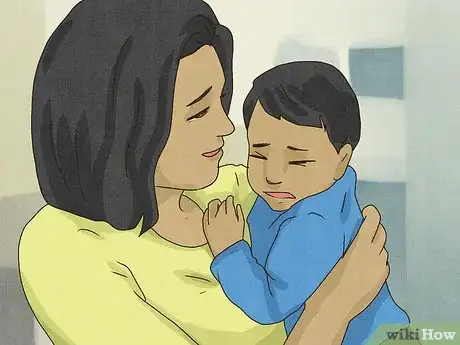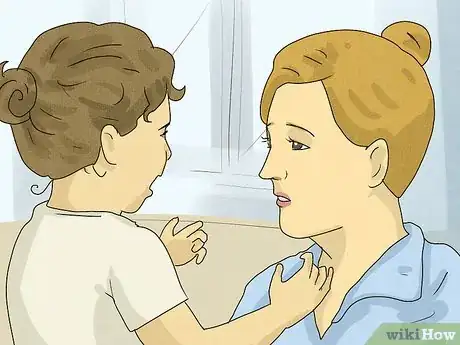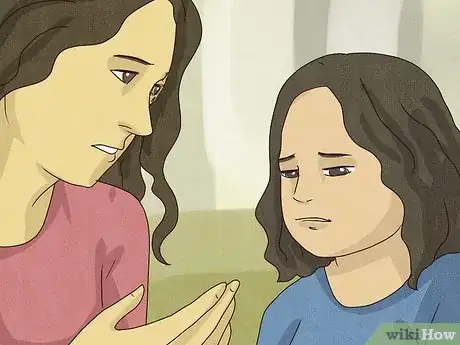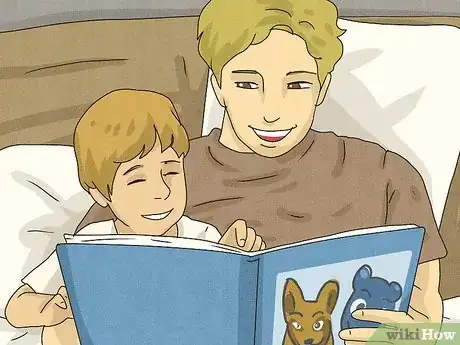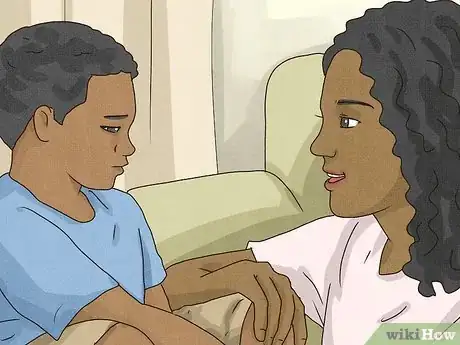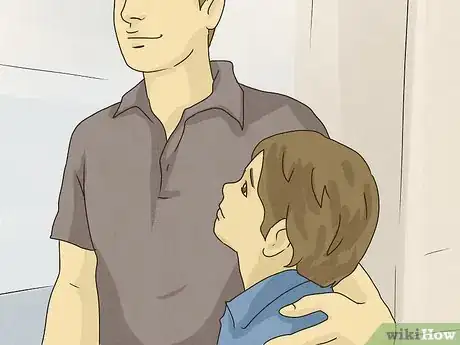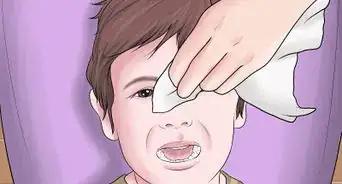This article was co-authored by Mirjam Quinn, PhD and by wikiHow staff writer, Jessica Gibson. Dr. Mirjam Quinn is a Licensed Clinical Psychologist and the Founder of Mirjam Quinn and Associates based in Illinois. With over 13 years of experience, she specializes in using cognitive-behavioral, mindfulness-based, and attachment theory grounded therapy techniques to provide psychological care for the whole person. Dr. Quinn also has a special focus on working with people from diverse and multicultural backgrounds and adoptive and blended families. She earned her PhD in Psychology from Purdue University and completed her internship at Butler University. Dr. Quinn is a member of the American Psychological Association (APA) and the APA Division for Peace Psychology and the Society for Child and Family Policy and Practice.
There are 9 references cited in this article, which can be found at the bottom of the page.
This article has been viewed 5,222 times.
Being afraid of things is a normal part of childhood, but as a parent, you want to help your child overcome their fears. Fortunately, acknowledging and talking about what scares them can really help your child face their fears and move on.[1] We'll walk you through how to talk with your child and empower them to get over their fears.
Steps
Expert Q&A
-
QuestionHow do you comfort a fearful child?
 Mirjam Quinn, PhDDr. Mirjam Quinn is a Licensed Clinical Psychologist and the Founder of Mirjam Quinn and Associates based in Illinois. With over 13 years of experience, she specializes in using cognitive-behavioral, mindfulness-based, and attachment theory grounded therapy techniques to provide psychological care for the whole person. Dr. Quinn also has a special focus on working with people from diverse and multicultural backgrounds and adoptive and blended families. She earned her PhD in Psychology from Purdue University and completed her internship at Butler University. Dr. Quinn is a member of the American Psychological Association (APA) and the APA Division for Peace Psychology and the Society for Child and Family Policy and Practice.
Mirjam Quinn, PhDDr. Mirjam Quinn is a Licensed Clinical Psychologist and the Founder of Mirjam Quinn and Associates based in Illinois. With over 13 years of experience, she specializes in using cognitive-behavioral, mindfulness-based, and attachment theory grounded therapy techniques to provide psychological care for the whole person. Dr. Quinn also has a special focus on working with people from diverse and multicultural backgrounds and adoptive and blended families. She earned her PhD in Psychology from Purdue University and completed her internship at Butler University. Dr. Quinn is a member of the American Psychological Association (APA) and the APA Division for Peace Psychology and the Society for Child and Family Policy and Practice.
Licensed Clinical Psychologist That will depend on the situation. If the fear is unwarranted, giving in and comforting the child might make them more fearful in the future. By comforting the kid, you'll communicate that they were right to fear the situation. Validate their feelings, but at the same time try to show confidence in their abilities to manage the situation.
That will depend on the situation. If the fear is unwarranted, giving in and comforting the child might make them more fearful in the future. By comforting the kid, you'll communicate that they were right to fear the situation. Validate their feelings, but at the same time try to show confidence in their abilities to manage the situation. -
QuestionWhat causes a child to be fearful?
 Mirjam Quinn, PhDDr. Mirjam Quinn is a Licensed Clinical Psychologist and the Founder of Mirjam Quinn and Associates based in Illinois. With over 13 years of experience, she specializes in using cognitive-behavioral, mindfulness-based, and attachment theory grounded therapy techniques to provide psychological care for the whole person. Dr. Quinn also has a special focus on working with people from diverse and multicultural backgrounds and adoptive and blended families. She earned her PhD in Psychology from Purdue University and completed her internship at Butler University. Dr. Quinn is a member of the American Psychological Association (APA) and the APA Division for Peace Psychology and the Society for Child and Family Policy and Practice.
Mirjam Quinn, PhDDr. Mirjam Quinn is a Licensed Clinical Psychologist and the Founder of Mirjam Quinn and Associates based in Illinois. With over 13 years of experience, she specializes in using cognitive-behavioral, mindfulness-based, and attachment theory grounded therapy techniques to provide psychological care for the whole person. Dr. Quinn also has a special focus on working with people from diverse and multicultural backgrounds and adoptive and blended families. She earned her PhD in Psychology from Purdue University and completed her internship at Butler University. Dr. Quinn is a member of the American Psychological Association (APA) and the APA Division for Peace Psychology and the Society for Child and Family Policy and Practice.
Licensed Clinical Psychologist There are lots of fear inducing experiences, but sometimes the parents are the main culprits here. Be aware of your own emotional states and see if it isn't you that are making the child fear a harmless situation.
There are lots of fear inducing experiences, but sometimes the parents are the main culprits here. Be aware of your own emotional states and see if it isn't you that are making the child fear a harmless situation.
References
- ↑ Peggy Rios, PhD. Counseling Psychologist (Florida). Expert Interview. 18 December 2020.
- ↑ https://www.mentalhealth.org.uk/sites/default/files/anxious_child.pdf
- ↑ Mirjam Quinn, PhD. Licensed Clinical Psychologist. Expert Interview. 3 March 2022.
- ↑ https://www.mentalhealth.org.uk/sites/default/files/anxious_child.pdf
- ↑ Mirjam Quinn, PhD. Licensed Clinical Psychologist. Expert Interview. 3 March 2022.
- ↑ https://www.zerotothree.org/resources/234-i-m-scared-responding-to-your-toddlers-fears
- ↑ https://www.mayoclinic.org/diseases-conditions/specific-phobias/diagnosis-treatment/drc-20355162
- ↑ https://childmind.org/article/help-children-manage-fears/
- ↑ https://www.psychologytoday.com/us/blog/singletons/201901/9-strategies-avoid-passing-your-fears-your-kids
- ↑ Mirjam Quinn, PhD. Licensed Clinical Psychologist. Expert Interview. 3 March 2022.
- ↑ https://parenting.mountsinai.org/blog/helping-anxious-kids/
- ↑ https://www.urmc.rochester.edu/encyclopedia/content.aspx?contenttypeid=1&contentid=570
- ↑ https://www.urmc.rochester.edu/encyclopedia/content.aspx?contenttypeid=1&contentid=570
- ↑ https://childmind.org/article/help-children-manage-fears/
- ↑ https://www.urmc.rochester.edu/encyclopedia/content.aspx?contenttypeid=1&contentid=570
- ↑ Peggy Rios, PhD. Counseling Psychologist (Florida). Expert Interview. 18 December 2020.

